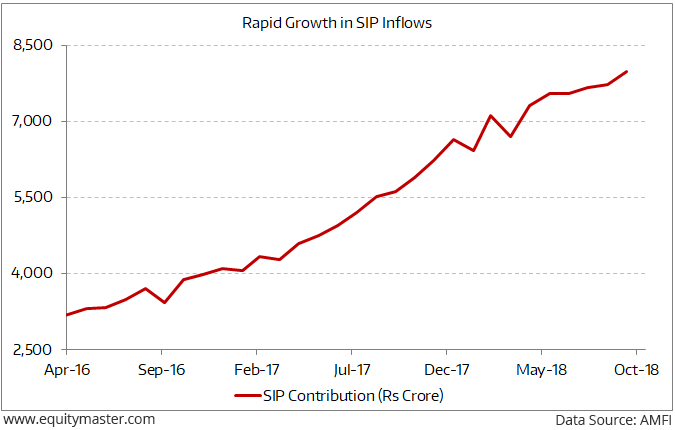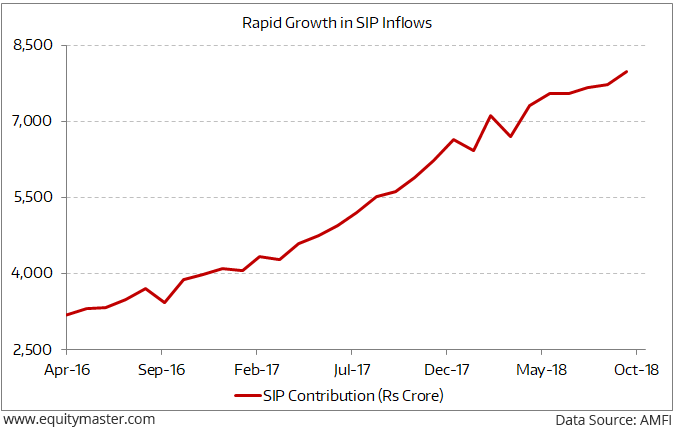
Share markets in India are presently trading on a flat note. Sectoral indices are trading mixed with stocks in the realty sector and IT sector witnessing maximum buying interest while and healthcare stocks are witnessing selling pressure.
The BSE Sensex is trading down by 24 points (down 0.1%), while the NSE Nifty is trading down by 7 points (down 0.1%). The BSE Mid Cap index is trading up 0.1%, while the BSE Small Cap index is trading up by 0.3%.
The rupee is trading at Rs 70.93 against the US$.
Note that while the markets are witnessing selling pressure lately, the SIP flows in to Indian stock markets are on the rise. Have a look at the chart below. It plots the month SIP contributions over the 31-month period between April 2016 and October 2018.
SIPs Continue to Rise Despite Market Correction

During the above period, SIP contributions have grown from Rs 3,122 crore in April 2016 to Rs 7,985 crore in October 2018, growing at compounded annual rate of 46%.
Currently, there are about 2.49 crore SIP accounts through which investors regularly invest in various Indian mutual fund schemes. As per AMFI data, the mutual fund industry added an average of about 10.05 lakh SIP accounts each month during the financial year 2018-19, with an average SIP size of about Rs 3,200 per SIP account.
Here’s what Ankit wrote about it in one of the recent editions of The 5 Minute WrapUp…
But there are a few questions that need to be answered…
Is this flood of domestic liquidity entering the markets a temporary fad? Or is there some element of long-term sustainability to it?
To answer these questions, the most reliable piece of data is SIP flows.
First, let me quickly explain what SIP is all about.
SIP stands for Systematic Investment Plan. It is an investment plan offered by mutual funds wherein one can periodically invest a fixed amount in a mutual fund scheme. It is similar to a recurring deposit wherein you deposit a certain amount every month.
SIP is a convenient method of investing in mutual funds through standing instructions to debit your bank account every month.
This not only saves you a lot of hassle, it also helps in averaging your costs and investing in a disciplined manner without worrying about timing the market.
For these reasons, SIPs have been gaining popularity among Indian mutual fund investors.
The liquidity pouring into the markets through SIPs is relatively stable, reliable, and long-term money.
















